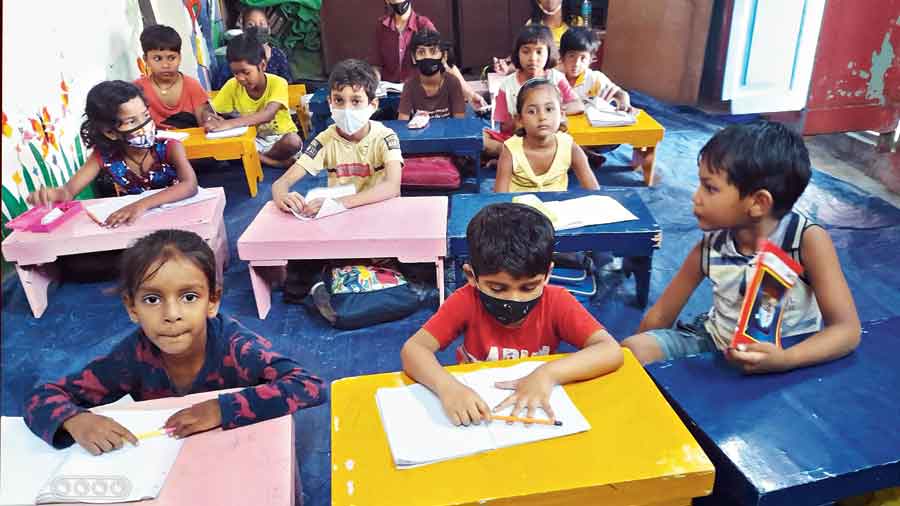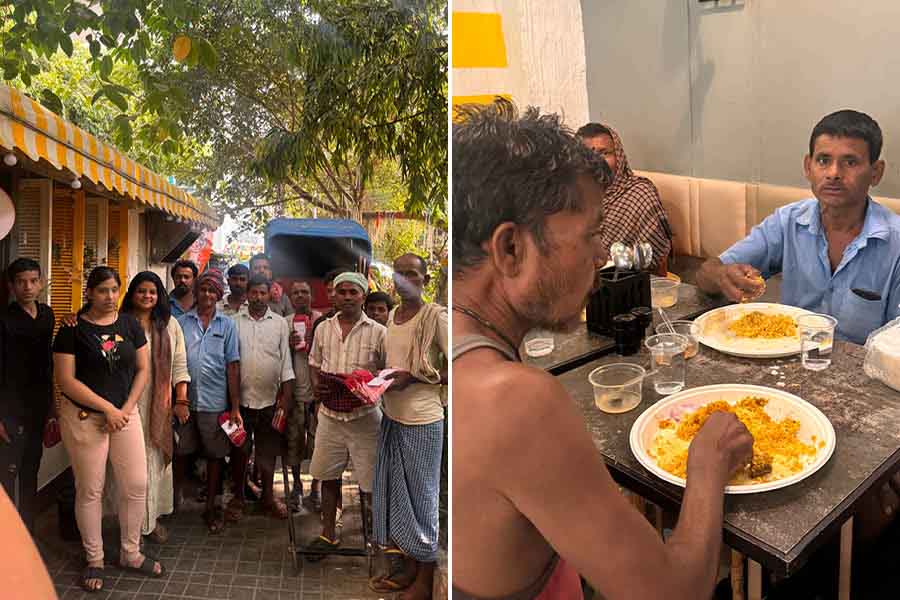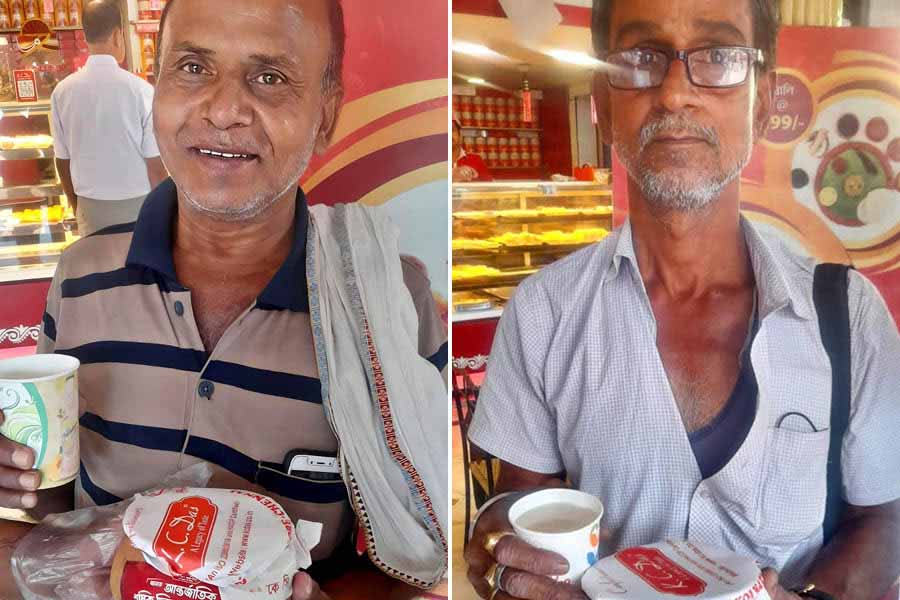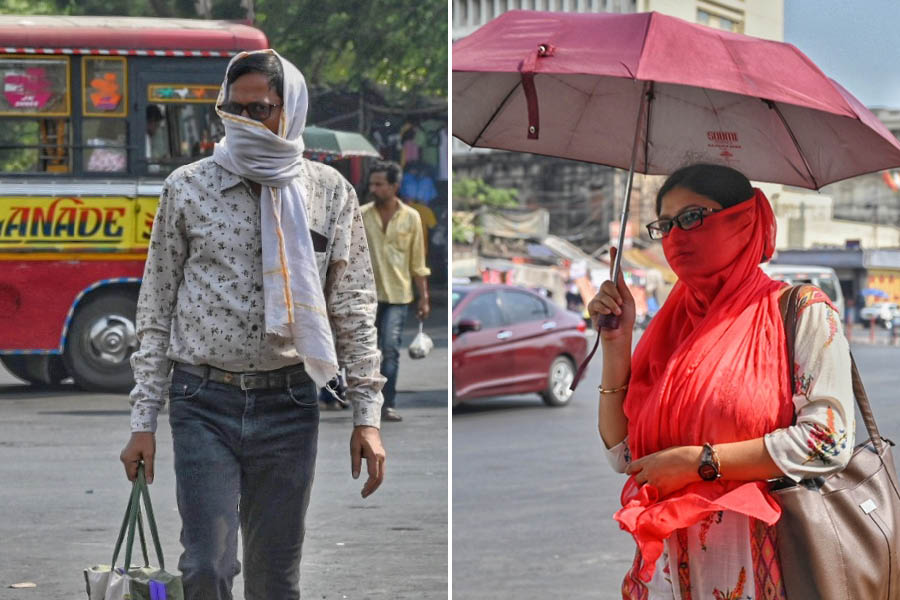Dividing a class into two or increasing a teacher in every class and providing meals to children are some of the ways in which NGOs in the city are trying to get street children back to class.
The NGOs are also trying to address the learning gaps created in the last two years.
Despite online classes, the gap in learning has been immense for some children and until that is addressed no progress can be made, teachers in NGOs said.
Teachers don’t just have to move ahead with teaching but go back to what has already been taught to see how much has been comprehended by students and identify the levels of learning.
Most of these children come from underprivileged families who struggled to meet basic needs. Studies have often had to take a backseat.
“The crumbling of studies is substantial amongst street children and we have to first ensure that they attend classes and only then can any progress be made with them,” said Arjun Dutta, president, Calcutta Social Project, who has introduced meals for their students.
“Attendance has to be regular and we are currently in the process of restoration of the habit of attending classes.”
The brown desks have been made colourful in an effort to make the ambience more welcoming and appealing for the children.
Despite the adverse situation at home, a section of students has got used to the home environment and have to be encouraged to make the effort to return to school.
“Unlike a mainstream school, our children are more keen to come to school but there is a section that is used to home. We have to lure them back,” said Vinita Saraf, founder and trustee of Ek Tara.
The NGO is laying emphasis on dance, sports, music and library activities besides academics to make the transition to offline classes more gradual.
NGOs understand that concentrating only on academics will make learning difficult for the children.
Ek Tara, for example, has reduced the teacher-student ratio to 1:20, instead of 1:30 before the pandemic.
A study centre in Bagnan, Howrah Vivekananda Siksha Kendra, has two teachers in a classroom because one teacher could not address all the student’s needs.
“We need a smaller class size because teachers have to identify the levels of learning and not have all of them in the same classroom just because they are going to the same class,” said Saraf.
Students might be in class for fewer hours a day but they are getting individual attention.
Many of the students attended online classes but faced problems in accessing devices, connectivity issues, background noise in a small room that they live in with their family — all of this hampered their progress in the last two years.






